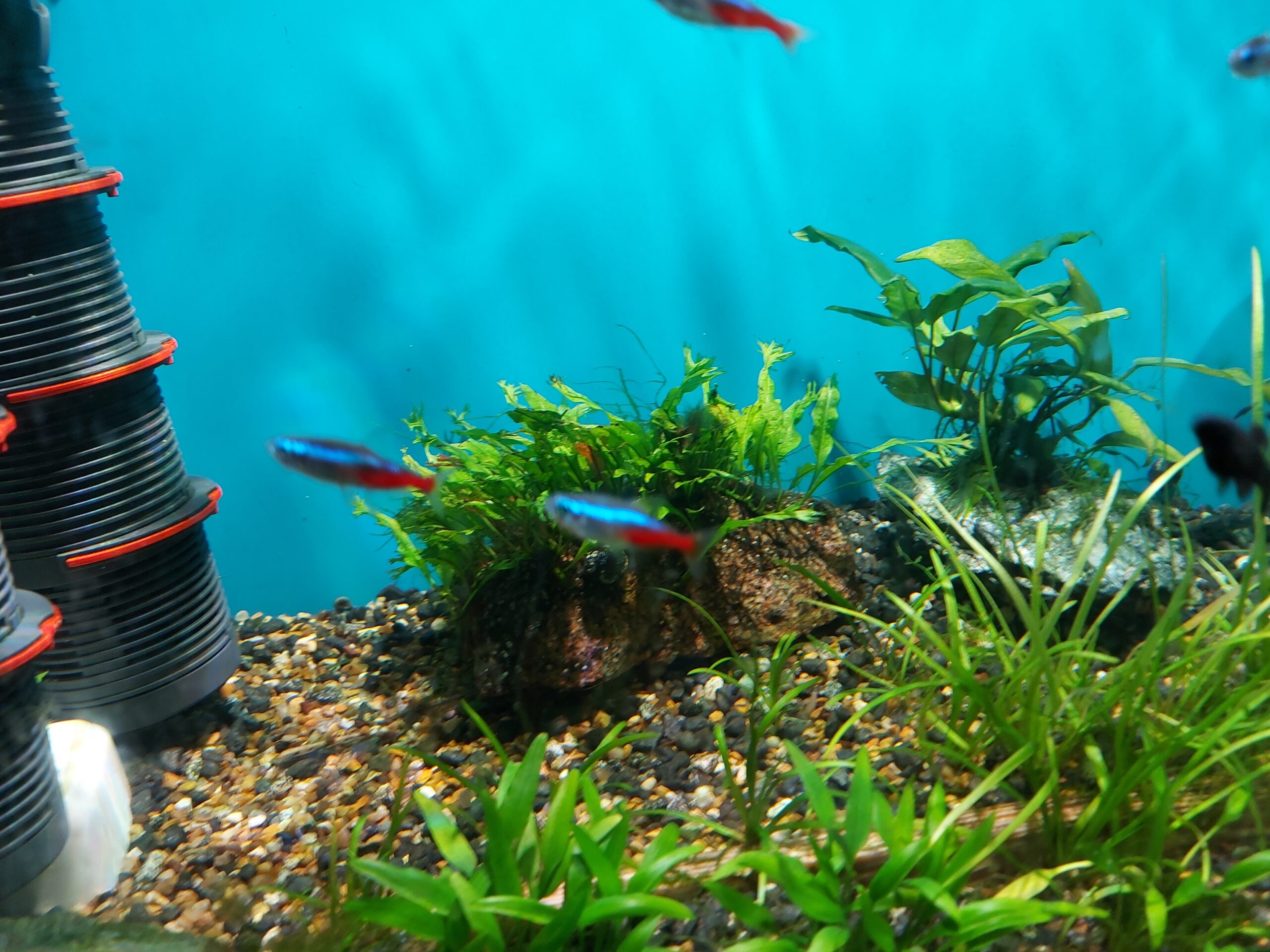Tetra fish are popular with aquarium enthusiasts due to their vibrant colors and active behavior. However, many people wonder whether tetra fish can live alone or if they require the company of other fish to thrive. The answer to this question depends on the species of tetra fish in question.
Some species of tetra fish, such as the neon tetra, are known to be schooling fish and require the company of other fish to feel secure and comfortable. On the other hand, different species of tetra fish, such as the ember tetra, can live alone without any issues.
It is essential to research the specific species of tetra fish before deciding whether they can live alone.
Overall, the decision of whether a tetra fish can live alone or not depends on the species in question. While some species require the company of other fish to thrive, others can live alone without any issues.
It is vital to research the specific species of tetra fish before deciding whether to keep them alone or with other fish.
Can Tetra Fish Live Alone?
Tetra Fish Behavior
Tetra fish are active and social creatures that thrive in groups. In their natural habitat, they form large schools that offer them protection and help them find food.
Tetras often display schooling behavior in an aquarium, swimming together in synchronized patterns. However, tetras can become stressed when kept alone and exhibit unusual behavior, such as hiding or swimming erratically.
Tetra Fish Socialization
Tetra fish are social creatures and thrive in groups of at least six. When kept in groups, tetras feel more secure and display natural schooling behavior.
They interact with each other, play, and explore their environment. In a group, tetras will also be less aggressive toward each other, reducing the risk of injury or death.
Tetra Fish Tank Size
When considering keeping tetras, choosing an appropriately sized tank is essential. Tetras require ample swimming space, and a cramped environment can cause stress and aggression. The recommended minimum tank size for tetras is 10 gallons, but larger tanks are preferable.
A larger tank will allow for a more stable environment, better filtration, and more space for plants and decorations.
Tetra Fish Tank Mates
When choosing tank mates for tetras, it’s essential to consider their social nature. Tetras are peaceful fish and do well with other non-aggressive species.
Good tank mates for tetras include other community fish such as guppies, platies, and corydoras. Avoid keeping tetras with aggressive or larger fish that may prey on or outcompete them for food.
In conclusion, tetra fish are social creatures that thrive in groups. While they can survive alone, it’s not recommended as they may exhibit unusual behavior and become stressed.
When keeping tetras, providing an appropriately sized tank and choosing compatible tank mates is essential.
Benefits of Keeping Tetra Fish in Groups
Tetra fish are known for their beautiful colors, dynamic behavior, and peaceful temperament. While it is possible to keep tetra fish alone, there are several benefits to keeping them in groups.
Natural Habitat
In the wild, tetra fish live in large groups and swim together to protect and find food. Keeping tetra fish in groups mimics their natural habitat, which can reduce stress and improve their overall health.
Behavioral Health
Tetra fish are social creatures and enjoy the company of their kind. However, when kept alone, they may become bored and exhibit abnormal behavior, such as hiding or lethargy.
Keeping tetra fish in groups provides them with social interaction and can improve their overall mood and behavior.
Dietary Needs
Tetra fish are omnivores and require a varied diet to stay healthy. They are likelier to exhibit natural feeding behavior when kept in groups, such as hunting for small insects and larvae.
In addition, feeding tetra fish in groups can reduce competition for food and ensure that each fish receives the nutrients they need.
Overall, keeping tetra fish in groups can benefit their health and well-being. However, it is essential to note that when keeping tetra fish in groups, proper tank size and water quality must be maintained to ensure the health of all fish.
Risks of Keeping Tetra Fish Alone
Stress and Anxiety
Tetra fish are social creatures that thrive in groups. When kept alone, they may experience stress and anxiety, weakening their immune system and increasing susceptibility to diseases. The lack of social interaction can also negatively impact their behavior and overall well-being.
Aggressive Behavior
Tetra fish kept alone may become aggressive towards other fish in the tank, as they have no other outlet for their natural social behaviors. This can result in injuries or even death of other fish in the tank.
Aggressive behavior can also cause stress for the tetra fish, leading to further negative health consequences.
Disease Susceptibility
Tetra fish that are kept alone are more susceptible to diseases due to a weakened immune system caused by stress and anxiety. Additionally, the lack of social interaction can lead to a lack of natural grooming and cleaning behaviors, which can also increase the risk of disease.
In conclusion, keeping tetra fish alone can lead to various adverse health consequences, including stress, anxiety, aggressive behavior, and increased disease susceptibility. Therefore, providing tetra fish with a social environment is essential to ensure their well-being and health.




